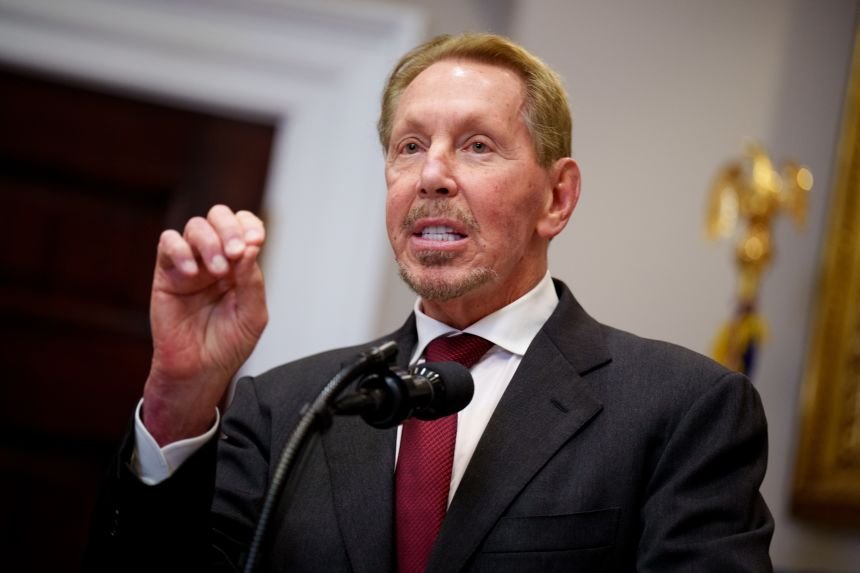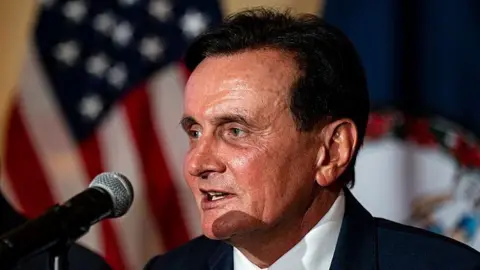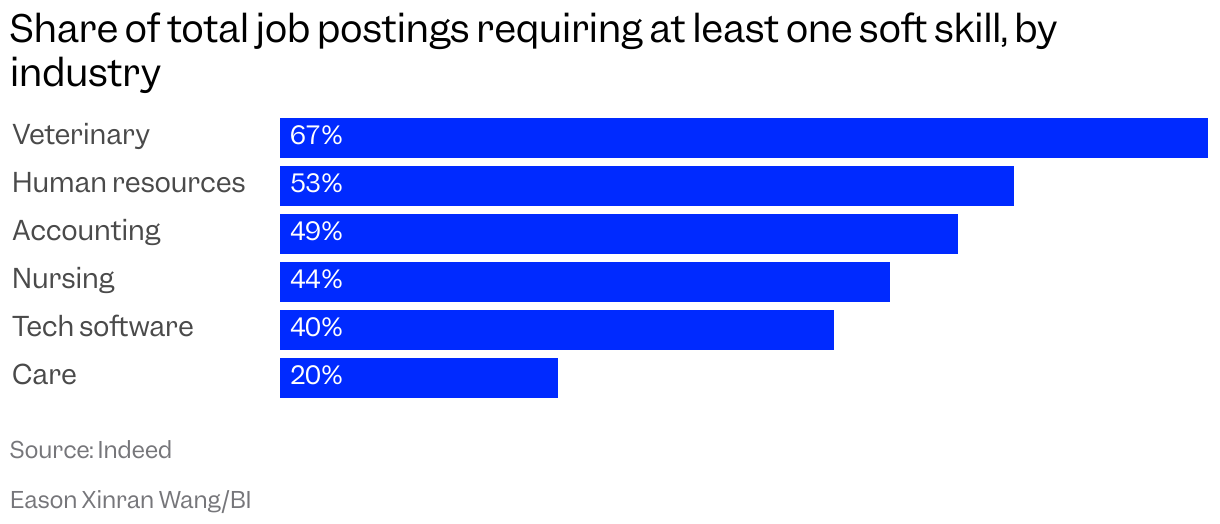A version of this story appeared in CNN Business’ Nightcap newsletter. To get it in your inbox, sign up for free here.
New York
—
Oracle, a large but generally sleepy cloud-computing company, just had an absolutely bonkers day on Wall Street.
The stock (ORCL) shot up more than 40% Wednesday morning, its largest single-day jump ever. It was such big leap that it minted Oracle co-founder Larry Ellison $100 billion in less than hour, making him the world’s richest person and bumping Elon Musk to second place.
The catalyst wasn’t a flashy product rollout or a surprise earnings beat — in fact, Oracle’s quarterly revenue and profit came in below Wall Street’s expectations Tuesday evening.
Instead, the fire came from Oracle’s outlook for the next few years, which, if it pans out, would cement the company as a power player in artificial intelligence. That’s a big “if,” though — especially given that the bulk of Oracle’s rosy outlook hinges on revenue from one major customer, the unprofitable OpenAI, according to the Wall Street Journal.
Oracle’s outlook is “so exuberant that if we’d gotten this sort of prediction from a less established company it might have been shrugged off as either a lie or a misplaced digit,” Steve Sosnick, chief strategist at Interactive Brokers, told me.
Here are the key things powering Oracle’s stock at a clip it hasn’t experienced since the late-90s dot-com-bubble era, when it rose nearly 600% in the span of a year before falling back to earth by 2022:
-
Oracle’s CEO, Safra Catz, said the company’s cloud infrastructure revenue would grow 77% to $18 billion by the end of May 2026. But that’s not all: It projects that revenue to hit $144 billion by 2030.
-
Catz said Oracle had signed four multi-billion-dollar contracts with three different customers, giving the company $455 billion in “outstanding contract revenue” that it expects to collect on. That metric is up 359% from last year.
Oracle, which sells database software, has somewhat quietly ingratiated itself to investors in the AI gold rush this year by securing deals with AI companies hungry for computing capacity. (If semiconductor giant Nvidia (NVDA) is the “picks and shovels” play of the current frenzy, think of Oracle as the Levi Strauss play — it’s not mining the gold, just providing durable trousers.) And now it’s making its debut as a force to be reckoned with against rival cloud-storage providers like Google, Amazon and Microsoft.
If Oracle’s head-spinning projections seem too good to be true, well, that’s all part of the fun-house mirror effect of the generative AI bubble (yes, I said “bubble”). Because for any of Oracle’s future projections to make sense, its AI customers, including OpenAI, have to make, like, a lot of money — something the ChatGPT maker has shown no clear path to doing anytime soon. (The Information reported last week that OpenAI’s projected cash burn this year through 2029 will hit $115 billion — about $80 billion higher than the company previously expected.)
Like other big tech names, Oracle is betting much of its future on the promise that demand for computing capacity will keep going up as generative AI ushers in some kind of as-yet-undefined revolution. So tech companies are spending hundreds of billions of dollars to build out the data centers — giant, energy-sucking buildings full of computer servers — to ensure the US has the technical infrastructure to deliver all of the AI magic.
That gamble on infrastructure is so massive it actually eclipsed consumer spending this year as the main driver of GDP growth, according to Renaissance Macro Research.
“This data center buildout continues to be a major support to the US economy… so we of course hope that Larry Ellison is right and that this massive buildout is sustainable,” Peter Boockvar, chief investment officer of One Point BFG Wealth Partners, said in a note Wednesday.
But Boockvar also sounded a note of caution: “While Oracle just knocked the cover off the ball, when I see one day market cap increases of such epic proportions, I can’t not think of what I witnessed in 1999.”
(Ahem, 1999 being the start of the dot-com crash.)
Oracle’s capital expenditures are “truly extraordinary,” at $35 billion for this fiscal year, which is about 52% of revenue, Boockvar notes. In 2024, it was 13% of the company’s revenue. “We’ve never seen such capital intensity from these previously large-free-cash-flow-generating businesses.”
In other words, Oracle is a huge company, and it’s never spent money like this ever before.
The risk here, of course, is that Oracle’s big customer, OpenAI, doesn’t deliver.
Generative AI, the engine of ChatGPT, is one of those rare technologies that manages to get less marketable over time. The more many regular people encounter AI in their lives, the more they come to associate it with “slop” on their Facebook feeds. Chatbots cannot reliably respond to human beings’ queries, and they have a pesky tendency of dragging said humans into delusional, at times deadly, mental spirals.
It isn’t completely useless, to be sure, but AI’s proponents have had an extremely difficult time building an application that’s lived up to their own hype (nor, certainly, has any of it lived up to the lofty valuations propping up American tech companies).
Without a game-changing tech update that either drastically lowers its costs or dramatically boosts its profits, OpenAI may be toast. And that presents a systemic risk to not just Oracle, in particular, but to the tech sector more broadly.
If Oracle can stick the landing, Sosnick said, “then by all means, this rally is well-deserved.”
“Yet you are correct in pointing out the risks inherent in the market’s complete revaluation of Oracle… Not only are Oracle stockholders crucially dependent upon the company meeting its guidance, but the broader market is, too.”


























